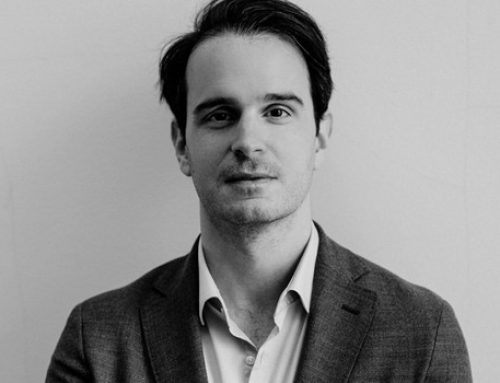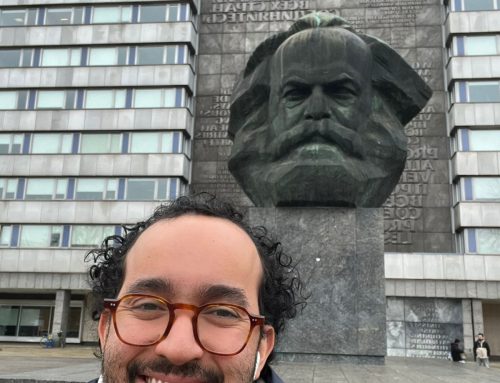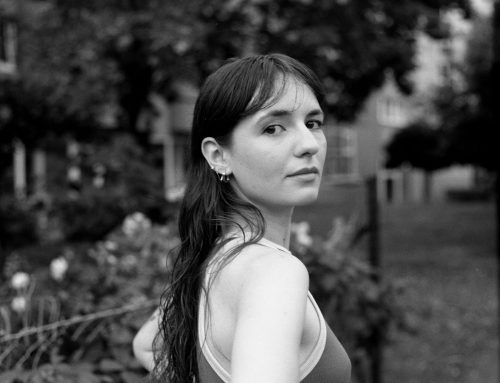Academic Space? Anthropological Positions and Beyond
The meeting was held on the 20th of February on Zoom at noon CET. It was organised for two reasons:
- To show support for Prof. Ghassan Hage after his sacking from the Max Planck Institute in Halle, as well as all for other scholars feeling pressure from their institutions for different reasons.
- To discuss how the academic community, and anthropologists in particular, might respond to this problem, which is by no means exclusive to one locality or one “issue”.
One hundred and fifty people signed up for the meeting, from a range of different institutions and universities, as well as independent scholars. The scholars in attendance were anthropologists, memory and Holocaust scholars and scholars in related fields from many different countries. There were also scholars present who were not comfortable with speaking in public or making their identity known. They communicated to the meeting via private messages. Both the number of colleagues who attended and the fact that many colleagues did not feel safe enough to speak in a closed meeting are evidence of the serious pressures scholars are feeling in academia at the current time. Colleagues who did not want to speak at the meeting offered accounts of how they had been pressured by senior management to retract statements or signatures on petitions that were felt to be “antisemitic”. In some instances this was because of pressure on the senior management by student groups/unions, suggesting that students are being mobilised by different interest groups for their “causes”.
The meeting started with three different perspectives on the issues at hand. First, Sarah Czerny asked about the concept of academic space, and what it is that needs to be “protected”. Jeremy F. Walton then offered some critical insights into the workings and structure of the Max Planck Society. He also stressed the intertwined aspects of scholarly and ethnographic knowledge production and the futility of demonising colleagues due to their political opinions and academic methods. Elissa Helms spoke from the perspective of Hungary and Austria about the different lines of ideological, political, and neoliberalizing pressures on academics that can be felt in different contexts (national, international, institutional), and how these pressures intersect.
The discussion was then opened to the audience in general. From our reading of the transcript, there were a number of shared “thematic areas”:
- The specific German issue of the IHRA (International Holocaust Remembrance Alliance) definition of antisemitism, and how this affects academic freedom in Germany, as well as its relation to parallel challenges in other contexts:
The IHRA definition of antisemitism is currently not a legal regulation but a parliamentary resolution, yet it is being treated by universities/academic institutions as “law”. In this way, the definition has been instrumentalised by academic institutions as a legal measure for antisemitism, even though it is not actually law. According to this definition, any critique of Israel as a state-actor is often automatically read as being antisemitic.
A colleague in the audience also spoke about how something similar has been happening in Turkey, and offered insights into how this “process” works. They said that as an academic in Turkey you have to be extremely careful about what you write because the misinterpretation of your intentions (even unintentional ones like a “typo”) can get you into serious trouble. They also made the point that this was not a kind of exclusion they ever expected would happen to them. Because of this kind of alienation and lack of “allyship”, they praised this meeting as a basis to work on forming allyship among colleagues who are also experiencing extreme alienation.
- Relations between students and lecturers/teaching staff:
In the current constellation of pressures, relations between teaching staff and students are also shifting. Teaching staff are hesitant to work on certain topics with their students because of the possibility that because of their teaching they will be read as taking on the role of “political actors” and/or engaging in “activism”. This has the effect of making the academic space smaller, not just in academic work, or work outside the institution (“popularising science”), but also in the teaching space. It means that certain topics become “taboo” in all three areas.
- Relations between academia and activism:
One notable point that arose during the discussion was how those wanting to silence certain narratives do so by framing them as “activism” or as being “politically motivated”. In this sense, these narratives are “ideologised” and set up in opposition to “academic” work, thus enabling their exclusion since they are presented as not “belonging” in the academic space. Those who offer “unwanted” narratives are removed from the institution altogether or silenced in other ways (such as pressure from senior management). Following a form similar to that which reportedly happened in the case of Professor Hage, external legal advice is sought by management on the position the university or research institution should take. This is where the “problem” appears to shift out of the academic space and become a legal issue.
A further, closely connected problem is related to how the discipline sees itself. As one participant put it, as a discipline anthropology is trying to extricate itself from the colonial/settler political context that it began in. This means that a decolonial dynamic is an integral part of the discipline, and engaging in what is going on in Palestine and Gaza is fundamental. In this sense, the discipline sets itself up for trouble because it can be read as both “science” and “activism”, which is a discussion being had in and around the discipline for decades. This split (from itself) also paves the way for those who want to use “activism” as a way of silencing others.
- Different positions in academia:
It was noted that those who are in a tenured or tenure track position and those who are on precarious, temporary contracts occupy very different positions, with very different “social currency”. Early career researchers made the point that they sometimes feel they are expected to take a critical position on what is happening but due to their precarious position in the academic institutional hierarchy this is extremely problematic for them to do. Tenured academics and those in less precarious positions were called upon to be more active and to take the lead.
- The relation between academic institutions, unions and legal issues:
The question was raised as to how academics can organise themselves legally in order to protect themselves, e.g. through local unions but also through international Associations (e.g. EASA). However, colleagues attending the discussion (who work in these associations) also pointed to the limits of what professional associations can do. They said that colleagues who are active in these associations tend to be overburdened already, and sometimes precarious as well (related to Point 4), whereas members could be more active in the work of these associations. Members of these associations can ask for working groups to be formed. The differences in local contexts are also important to note, especially with regards to legal issues, since scholars are working in different national and institutional regulatory frameworks. This is where local/national unions offering legal support could be a helpful resource for scholars in need of legal advice since some offer legal support services.
- Fieldwork in and of institutions:
At the moment tension can be observed between the sense that, on one hand, there is a general assault on scholarly labor due to a shared set of political and socioeconomic circumstances and, on the other, the dynamics of specific contexts vary quite a lot. It was suggested that there is a need to build on work that has explored those relations ( among academics, students, management, legal, wider political interests, etc.) that constitute “academic space”, and to do so ethnographically.
- The relation between complicity and silence:
This is closely related to the different positions in academia/the academic space. Precarious colleagues, or colleagues who have been directly pressured by senior management, are often not in a position to speak out, and being “silenced” can elicit a feeling of being complicit in what is happening. It raises the question of how different positions in academia might be instrumentalised to reduce this feeling of complicity for those who are in this situation.
We welcome those who are interested in further initiatives. Please write to us at cas@cas.uniri.hr.




